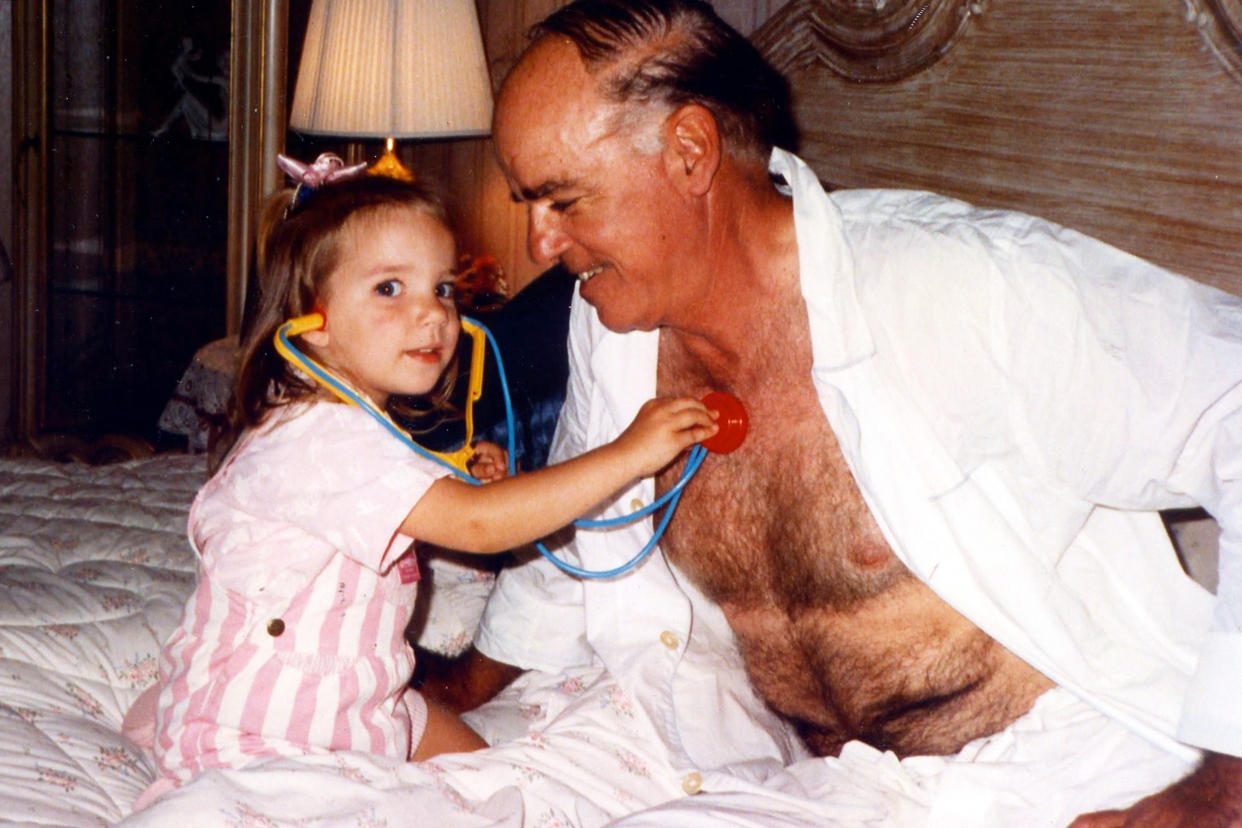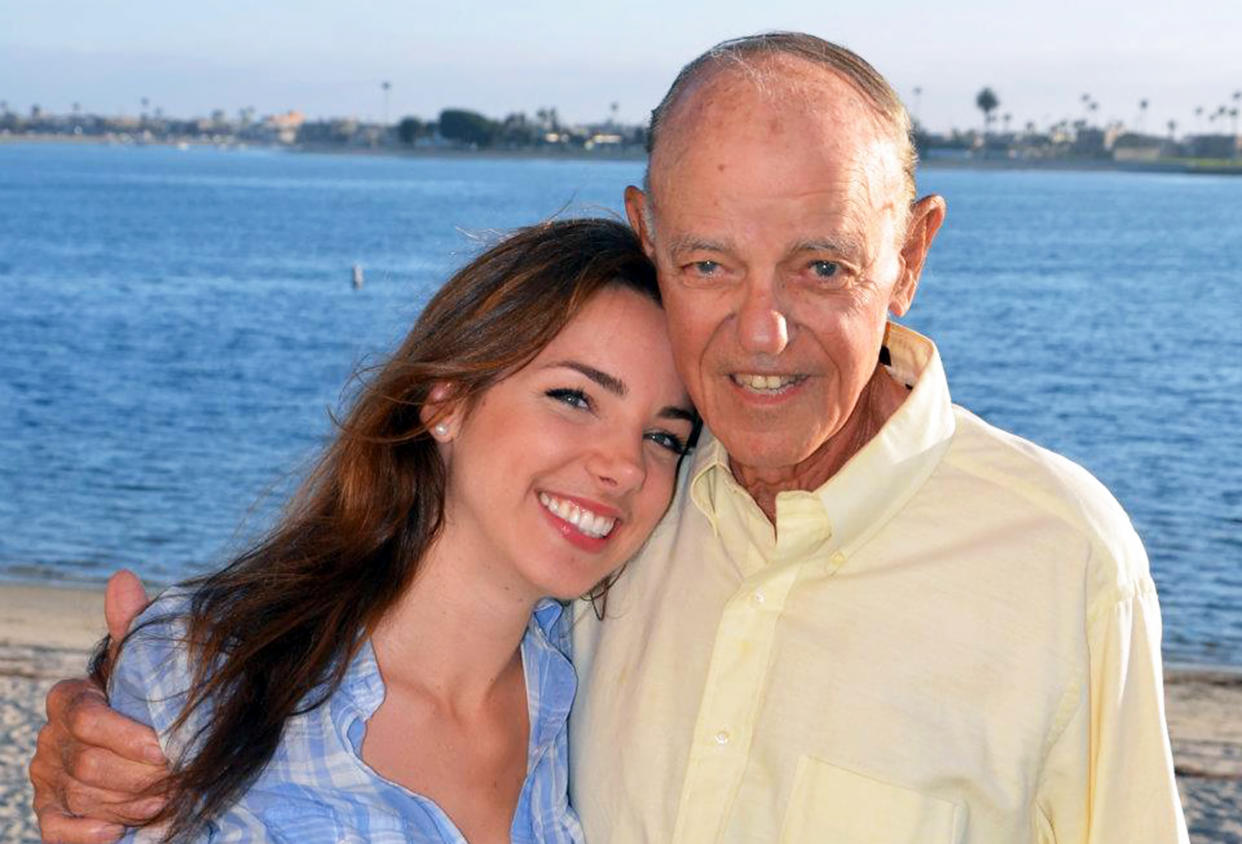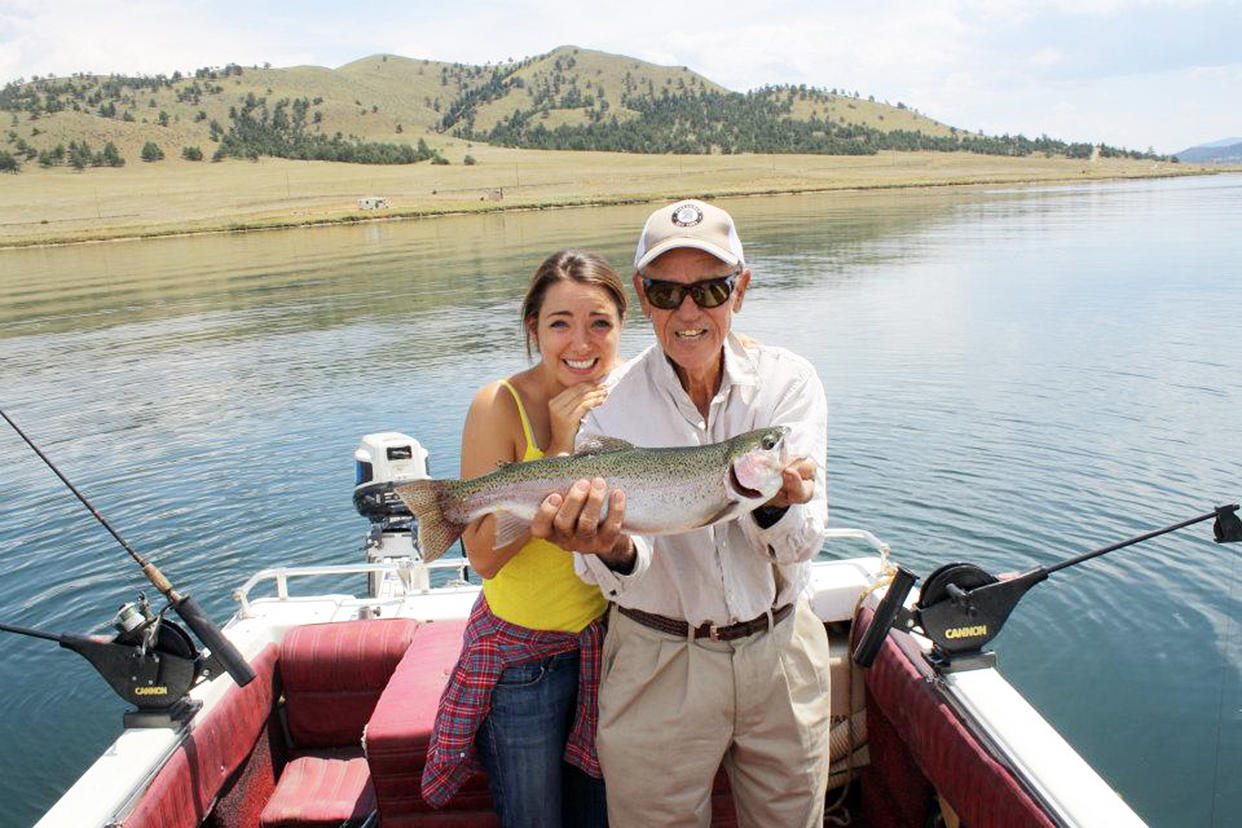5 ways to support your friends in the ‘Dead Dads Club’ this Father’s Day
“Hey, gorgeous! Your account caught our eye — we’d love to send you this free DAD necklace to show your dad some love this Father’s Day! All you have to do is post on IG and tag us. Can we send you a free DAD necklace?”
A photo accompanied the message I’d found in my Instagram inbox: a sexy model pouting at the camera, her finger entwined in a silver chain. On that chain was a huge pendant — about the size of a lipstick case — that simply read, in all caps, “DAD.”
A familiar heat flooded my face as acid spiked in my stomach. I felt sick, and it wasn’t just because of the weird Oedipal “Dad” necklace pitch.
“Lol, sorry,” I replied to the obvious Instagram bot. “My dad’s dead.”
My dad was diagnosed with stage 4 colon cancer when I was 15 years old. Initially he was given just six months to live, but he went on battling for 11 years, finally succumbing to the disease in 2012.

It might sound callous, but many of those 11 years were actually quite fun. When you know someone is dying, everything takes on a kind of shine. You become hyper aware that every little event has the potential to become a capital I, capital M, “Important Memory”; watching the NCAA basketball tournament, the weird requests for microwaved turkey bacon, the well-worn jokes the nurses pretend to laugh at a hundred-plus times.
Even though I knew it was coming, losing my dad in my mid-20s brought a unique, unexpected set of challenges and traumas: I was too young to be settled with my own adult life and support system to handle the loss, but too old to have any immediate adult authority figures to lean on for help.
With time, the desperate sting of those first couple years has lessened. But the thing that always, always brings me back to that rock-bottom grief is Father’s Day marketing.

For anyone who has lost a parent, May and June are a minefield. It’s not just avoiding the greeting card aisle at the grocery store anymore. Now, the marketing messages flood our email inboxes, our social media feeds and the SMS sales alerts we don’t remember ever signing up for. While some companies allow us to “opt out” of Mother’s and Father’s Day pitches, those brands are few and far between.
And so, as a practice of reclaiming my sense of emotional safety, I have begun to reply to these marketing messages with the abrupt, shocking statement: “My dad’s dead.”
Will anyone actually see these replies? Probably not. But on the off chance they do reach human eyes, I like to think it makes people at least consider giving subscribers the chance to remove themselves from the triggering sales-storm.
Now that I have 10 years of distance from my dad’s death, I’ve made it a personal mission to note and gather names of friends and acquaintances who have lost parents, especially if the loss happened during their 20s or 30s, as I know too well the unique brand of grief those people experience.
Here are a few things that help those of us in the “Dead Parents Club” get through May and June with a little more dignity and peace:
Laughter
It’s trite but true: Laughter really is the best medicine. Well-meaning friends will often approach those of us in the parentless club with kid gloves, assuming everything has to be somber and sad. In truth, laughter can be a huge release for our grief! If we’re in a place to receive it, try recommending (or joining us!) for funny TV shows, comedy specials or podcasts. Take us out on the town for a night out. Help us remember that it’s OK to have fun and enjoy life.

Making it OK to talk about our deceased loved one
Friends and family often don’t want to upset or trigger us by talking about our dead parent, so they just stay awkwardly silent, which often feels worse. Naming the elephant in the room takes much of the emotional labor of asking for help off the grieving person. A simple message that acknowledges the fact that it’s a tough holiday or anniversary lets us know you’re a safe person to talk to.
Memory sharing
If you need ideas on how to actually talk about your friend’s parent, try memory sharing. Whether it’s your own memory of the person who passed away, or asking questions that can lead to us sharing our own memories, telling stories about the deceased can help validate our experience.
Meals
No one wants to cook when they’re grieving. If you’re more of a do-er than a talk-er, consider dropping off food or (my favorite) sending a digital gift card for a food delivery service like Uber Eats or Postmates.
Check-in texts that don’t require a response
Sometimes in the thick of grief, we may not feel like talking, but that doesn’t mean we don’t want to hear from you. Send a message that says, “No need to respond, just wanted to say I’m thinking of you.” Again, this takes the emotional labor off the grieving person while still letting them know they have a support system.
The thing about grief is you never know how hard it will hit, or when. That said, there are holidays, anniversaries and dates that you can anticipate that grief being triggered.
If you’re a fellow member of the Dead Dads Club, I’m really sorry you had to join, but know there are so many others out there who share your experience; you are not alone.
If you’re a friend of someone experiencing grief this Father’s Day, I hope you use this list to show up for your friend. If you want bonus points, share this list with your network — you never know who it may help.
This article was originally published on TODAY.com
